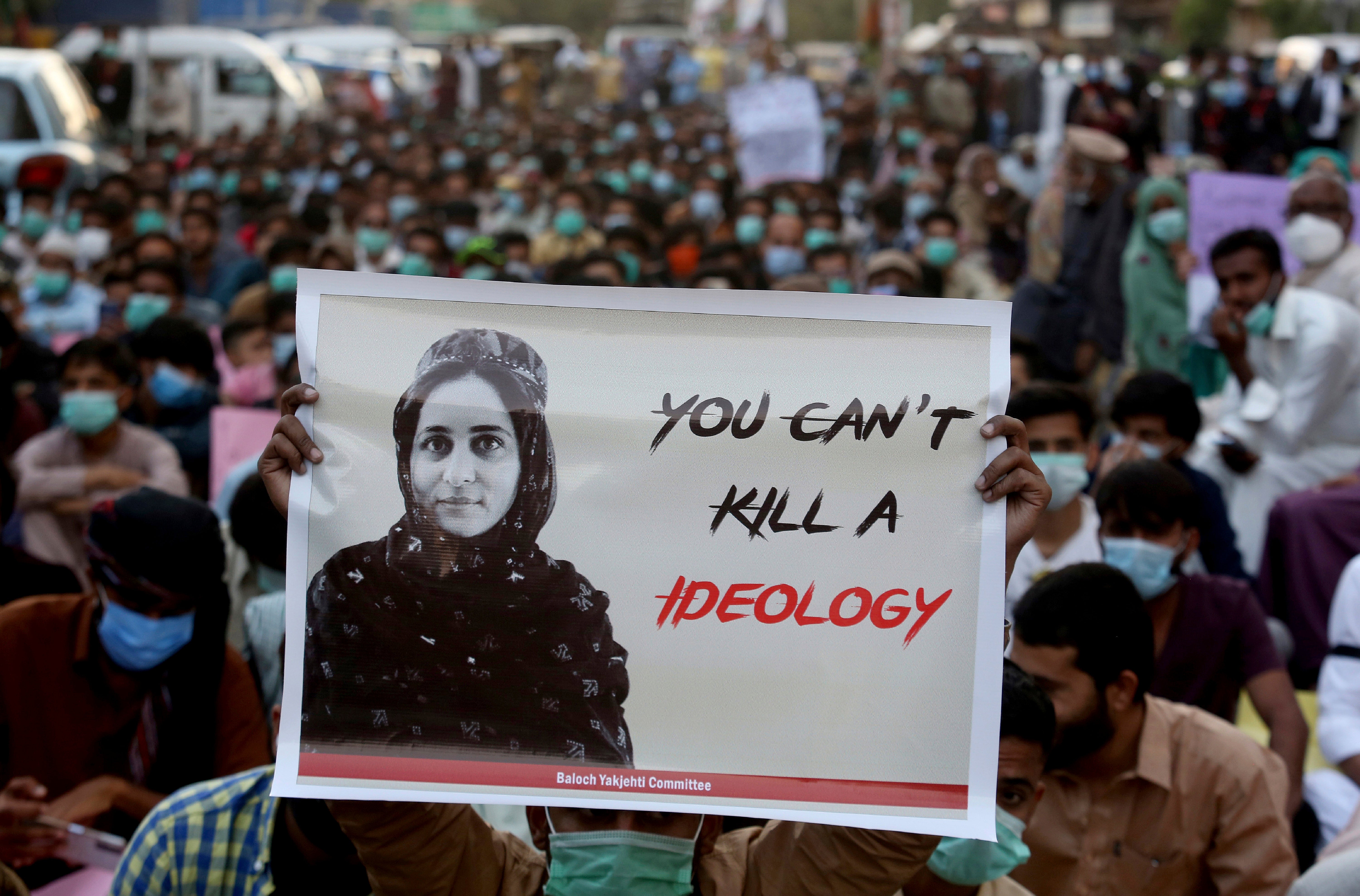Group: Pakistani Baloch dissident buried amid high security
A Pakistani dissident and woman rights activist who died in exile in Canada last month was brought home and laid to rest in her home village in the southwestern Baluchistan province under tight security

Your support helps us to tell the story
From reproductive rights to climate change to Big Tech, The Independent is on the ground when the story is developing. Whether it's investigating the financials of Elon Musk's pro-Trump PAC or producing our latest documentary, 'The A Word', which shines a light on the American women fighting for reproductive rights, we know how important it is to parse out the facts from the messaging.
At such a critical moment in US history, we need reporters on the ground. Your donation allows us to keep sending journalists to speak to both sides of the story.
The Independent is trusted by Americans across the entire political spectrum. And unlike many other quality news outlets, we choose not to lock Americans out of our reporting and analysis with paywalls. We believe quality journalism should be available to everyone, paid for by those who can afford it.
Your support makes all the difference.A Pakistani dissident and woman rights activist who died in exile in Canada last month was brought home and laid to rest in her home village in the southwestern Baluchistan province under tight security, activists said Monday.
Only the immediate family of 37-year-old Karima Baloch were allowed to attend her funeral on Sunday in the village of Tump in Baluchistan.
Her supporters claim that Pakistani troops had sealed off the village and prevented them from attending her burial. Her remains were brought to Pakistan from Canada earlier on Sunday.
Baloch’s body was found on Dec. 22 near Toronto’s downtown waterfront, a place that she liked and often visited, a day after she was reported missing. Toronto police have not treated her death as suspicious though there were allegations by her supporters that she was killed.
A fierce critic of Pakistani spy agencies that are often accused of abducting activists in Baluchistan and elsewhere in Pakistan, she was granted asylum in Canada in 2016. Her death has raised suspicions among rights activists, who on Monday denounced authorities for holding the funeral in near secrecy.
“It is appalling to see how Karima Baloch’s dead body was treated," said Mohsin Dawar, a lawmaker from Pakistan's former tribal regions who campaigns for Pashtun minority right but like Baloch, has also criticized Pakistani spy agencies.
“It is not difficult to understand how this will deepen the divide and fuel separatism," he tweeted. "Is this the strategy to deal with the Baloch insurgency, to sprinkle salt on the wounds of Baloch?"
There was no immediate comment from the government, but a video that surfaced on social media shows soldiers turning back several mourners who are heard in the footage saying they wanted to pay their last respects to Baloch.
Angered over the situation, a Baloch nationalist group — the Baloch Solidarity Committee — issued a call for a daylong strike and complete shutdown in Baluchistan on Monday. Its statement said Pakistani troops spirited Baloch's coffin on its arrival from Canada and foiled a move by her supporters to hold her funeral in Karachi, instead taking her remains to her home village.
Later on Sunday, hundreds of Baluch activists rallied in Karachi, denouncing the government for not allowing that Baloch's funeral be held in the city.
They chanted antigovernment slogans and demanded justice for Baloch, who they say was a “voice of the Baloch people” that was “silenced.” The activists insisted she did not die a natural death though they offered no evidence to support their allegation.
Baluchistan has for years been the scene of a low-level insurgency by small separatist groups and nationalists who complain of discrimination and demand a fairer share of their province’s resources and wealth.
Although there are also militant groups in Baluchistan that stage attacks on soldiers, separatists also often attack troops in the province, prompting authorities to detain suspects. Human rights activists often blame security forces of illegally holding people. Such detainees are usually not charged and do not appear in court, which draws protests from their families and rights activists.
___
Associated Press writer Munir Ahmed in Islamabad contributed to this report.